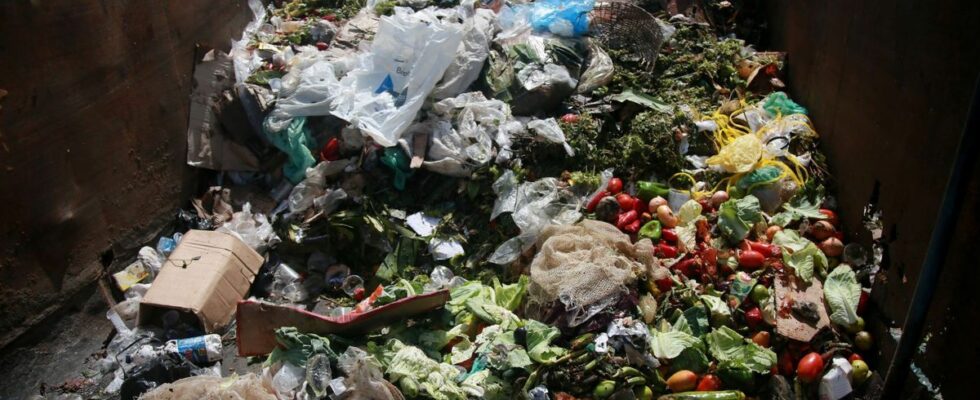Published on
updated on
Reading 3 min.
To reduce the volume of rubbish, which has doubled in 40 years, many communities are opting for incentive pricing, a system which is effective according to Ademe but contested in rural areas, particularly when it eliminates door-to-door collection.
The principle is to charge households based on the quantity of waste produced, unlike the household waste collection tax (TEOM) – included in the property tax – which does not depend on the service provided.
With this system already adopted, as of January 1, 2021, by approximately 200 communities representing 6.6 million inhabitants, individuals are entitled to a fixed number of collections per year, or openings of voluntary contribution bins in the event of the collection being canceled. The volume of waste depends on the composition of the household.
The Agency for Ecological Transition (Ademe) defends this strategy to achieve the legal objective of reducing household and similar waste by 15% in 2030 compared to 2010, and emphasizes that it allows savings to be made by reducing the frequency of collections, or even eliminating them, while the cost of waste management has more than doubled over the past two decades.
But some residents see this as a new blow to public services, as in Dordogne where the issue is inflammatory: more than ten waste containers have been burned this year and two groups have filed appeals with the Bordeaux administrative court against voluntary drop-off points.
“Wild dumping”
They are relying on a summary judgment by the Toulouse administrative court, which in December ordered a community of communes in Haute-Garonne to reinstate door-to-door collection in the face of the “development of fly-tipping near collection points” and the “constraints” encountered by certain users, in particular “those who are most physically handicapped”.
In Haute-Vienne, a petition collected more than 3,000 signatures after the implementation of the incentive fee by the Ambazac community of communes.
“This is punitive ecology“, rages the leader of a users’ collective, Muriel Erimante, denouncing in no particular order the elimination of packaging collection, the reduction of garbage collection to once a month, an increase in the fee, “illegal dumping” and the failure to take into account “an aging population that does not always have the means to go to eco-points” or parents of young children in diapers.
Faced with this revolt, the community has revised its specifications and set up a door-to-door collection of recyclables since July.
The subject also divides elected officials.I was surprised that it took on such proportions.“, confirms Jacques de La Salle, vice-president in charge of household waste at the Haut-Limousin community of communes, which has also moved – not without opposition – to incentive pricing.
Reduction in quantities thrown away
Ademe highlights the results obtained.
“Communities with incentive pricing have an average of 132 kg per year and per inhabitant of residual household waste, compared to 194 kg for those with TEOM“, argues Roland Marion, circular economy director of the agency, also noting “more contributions to recycling centers”.
He acknowledges the problem of fly-tipping, “especially in the early years”, but estimates it at “just under 2 kg per year with the change compared to 0.6 kg elsewhere“. “Incentive pricing costs less but changes behavior, you have to be able to explain it well” he continues.
The Évolis 23 joint sustainable development union, responsible for waste collection in part of Creuse, carried out several internal studies with local authorities before implementing incentive pricing, for “ensure that you have the political support of local elected officials” because “we knew that there would potentially be some unrest among the population“, explains its director Vincent Fortineau.
After numerous public meetings, the structure has “chosen to put at least one voluntary contribution point for all municipalities” because “It is often the new collection method that is poorly received” he continues.
Balance sheet?We were at 210 kg per year (before the new pricing) and, in 2023, it was around 139 kg“, the manager emphasizes.
